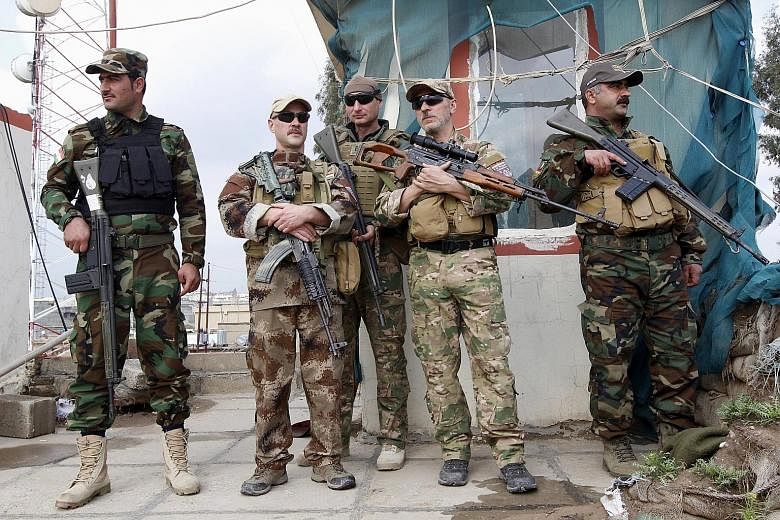The arrest of a Singaporean travelling overseas to fight the Islamic State in Iraq and Syria (ISIS) shows the Government's unambiguous stance against its citizens engaging in armed conflicts, security experts said yesterday.
Ms Susan Sim, vice-president for Asia at New York-based The Soufan Group, a strategic security consultancy, said: "If you are not a soldier obeying lawful orders, then the Singapore Government's stance is clear - you cannot take up arms on behalf of any group, for any cause.
"If an exception is made for any one cause, then where does it stop? Who is to say one cause is more righteous than another?"
The Ministry of Home Affairs announced yesterday that Wang Yuandongyi, 23, was arrested under the Internal Security Act and placed on a Restriction Order, which limits his movements and activities.
He had left Singapore in January and was on his way to Turkey and Syria to join a Kurdish militia that was fighting ISIS.
He had travelled to a third country, which the ministry did not name. On the request of the Singapore Government, he was located by that country's officials and sent back here.
Analysts noted that although Wang seemed to have no ethnic or religious links to the Kurds, there could have been numerous other reasons for him to take up their cause. "There may be those who believe that they can help a community by fighting on its behalf. They may believe they are being altruistic," said Ms Sim.
Investigations showed that Wang was looking to escape personal setbacks such as his debts from a failed business venture.
The bid to join the Kurds could have been his way of avoiding his financial issues, said senior analyst Jasminder Singh of the International Centre for Political Violence and Terrorism Research.
"He does not fit the profile of a mercenary. This could be just a form of adventure," he added.
Had Wang succeeded, his actions could have had negative repercussions on Singapore, analysts said.
For instance, Wang could have been conditioned to use violence here to solve his problems.
"There is nothing romantic about volunteering for someone else's war. Once a person gets used to the idea of killing to achieve his objectives - the objectives he has decided for himself - what's to stop him from doing the same thing in Singapore?" said Ms Sim.
Mr Singh noted that Wang had taken his Singapore Armed Forces uniform and boots with him. This could have conveyed the wrong impression that the Singapore military had been sent to the Middle East, causing ISIS to make Singapore a target. "It would have been the perfect excuse for ISIS to launch an attack here or go after our facilities overseas such as our embassies," he said.
Wang is not alone in wanting to take on ISIS in the Middle East, with reports of scores of Americans and Europeans - some of them military veterans - taking up arms against the terrorist group.
The Ministry of Home Affairs said Wang will undergo psychological counselling to steer him away from resorting to violence. He will also be closely monitored by the authorities.


